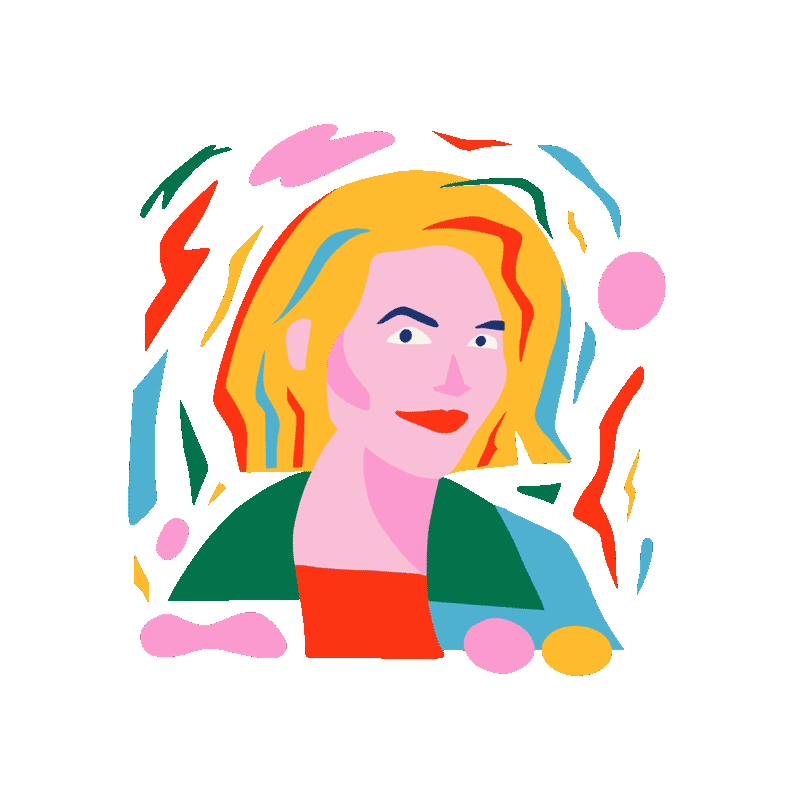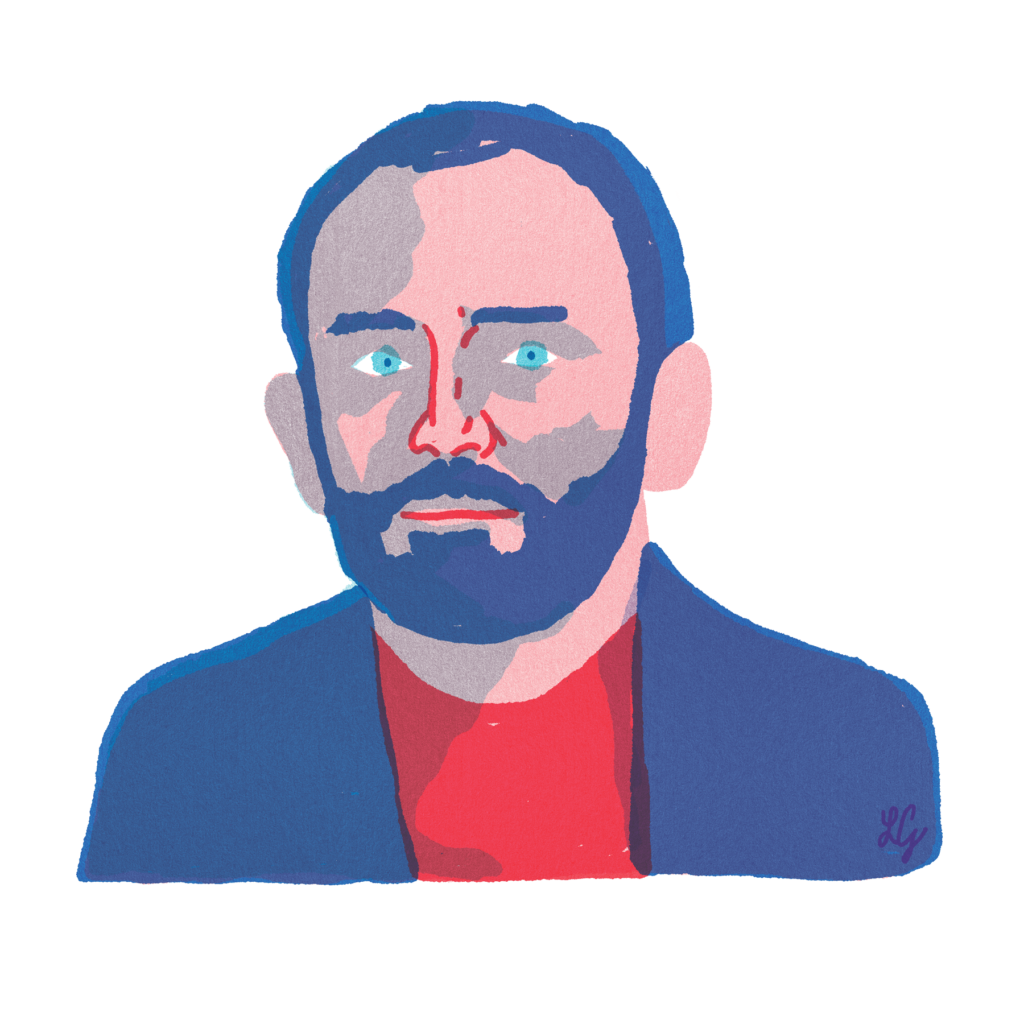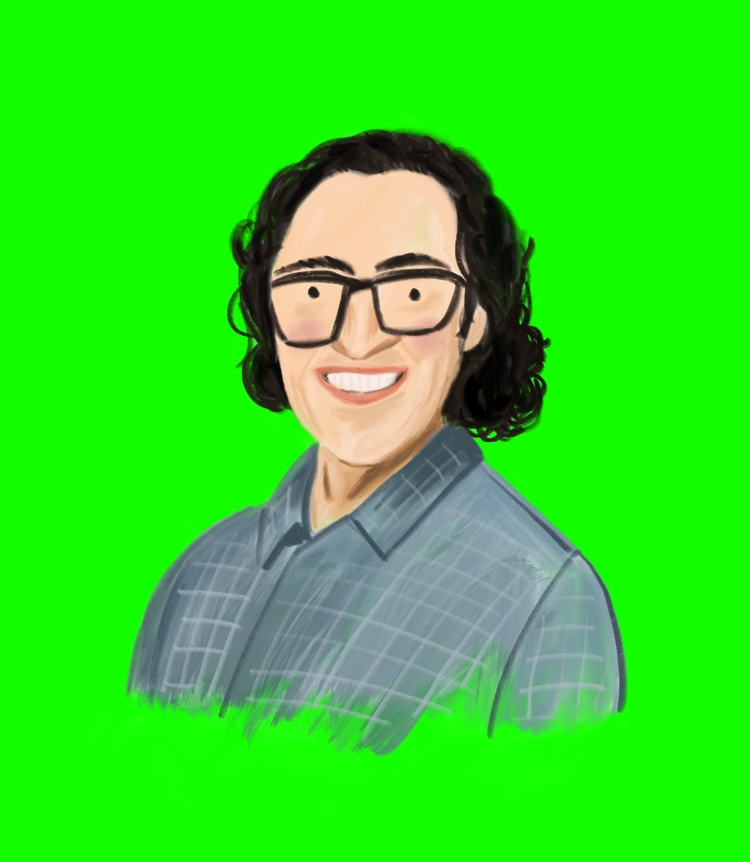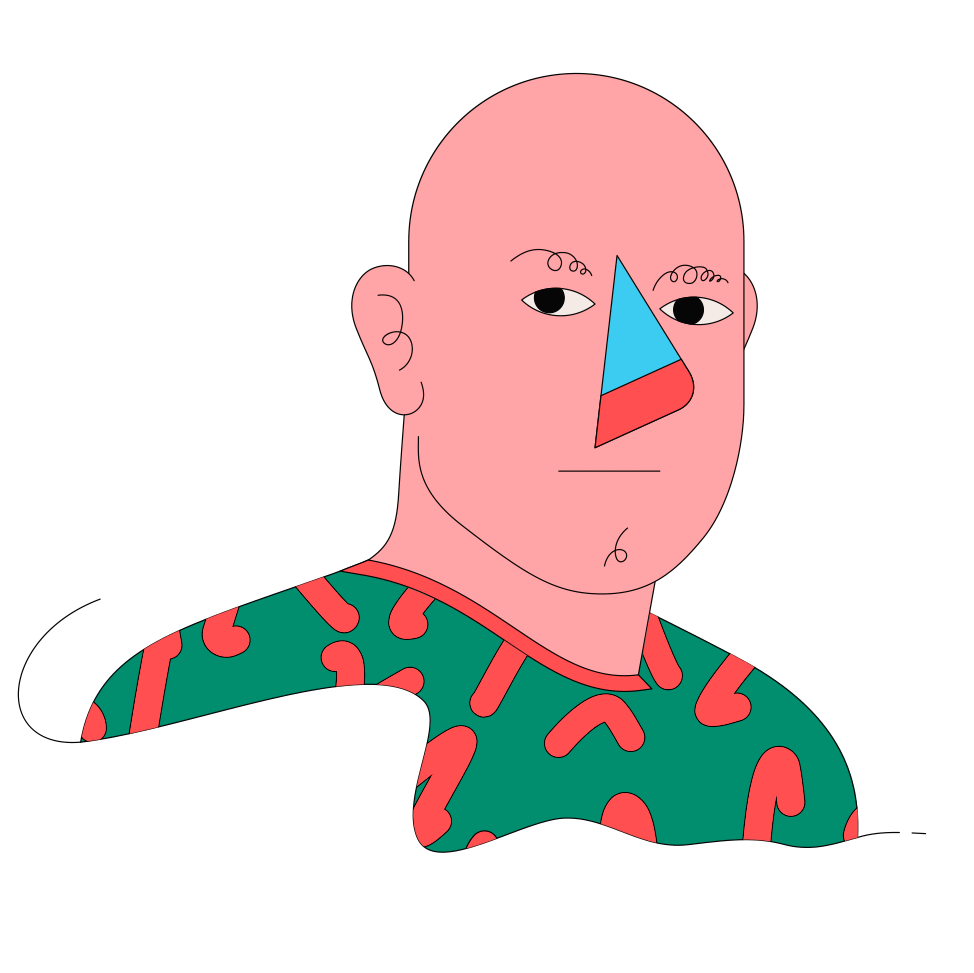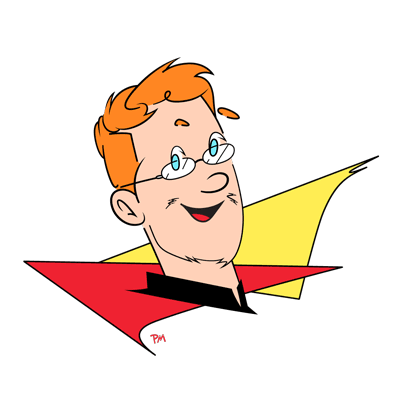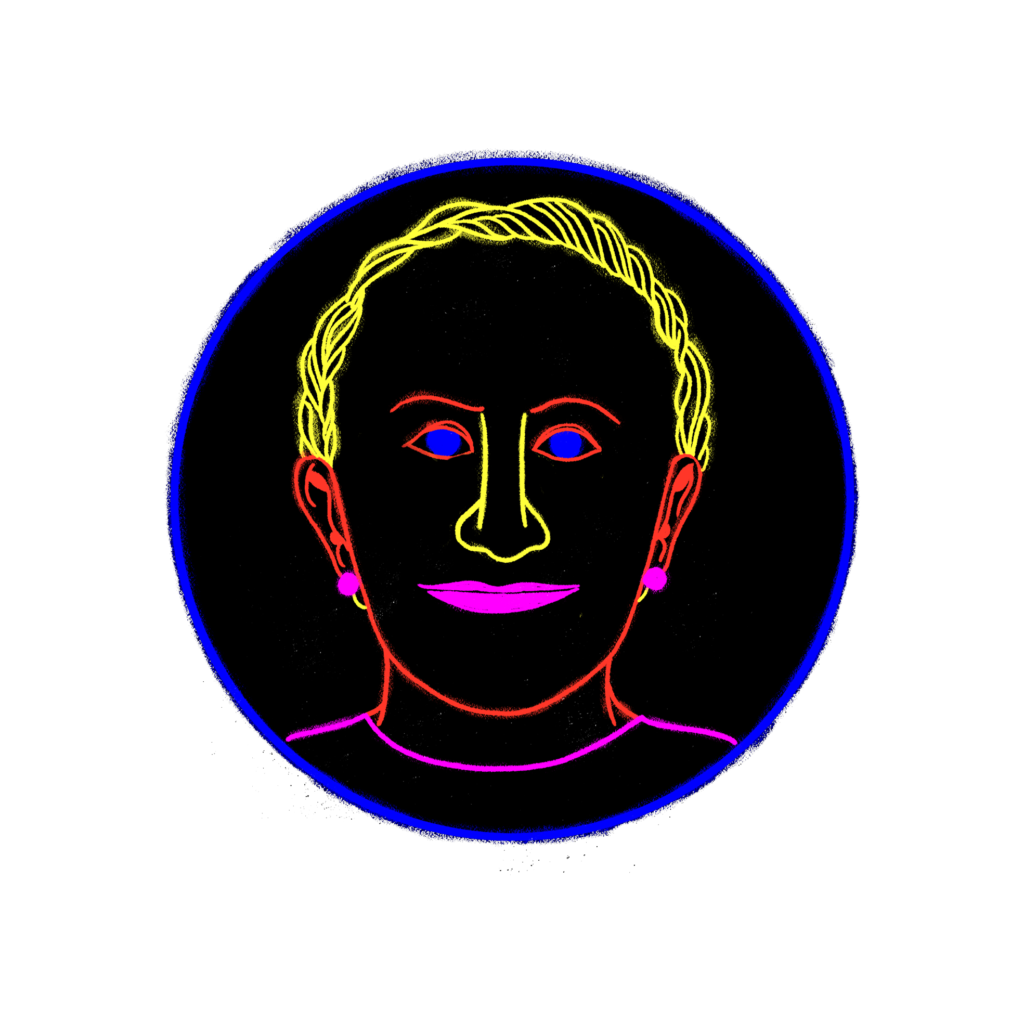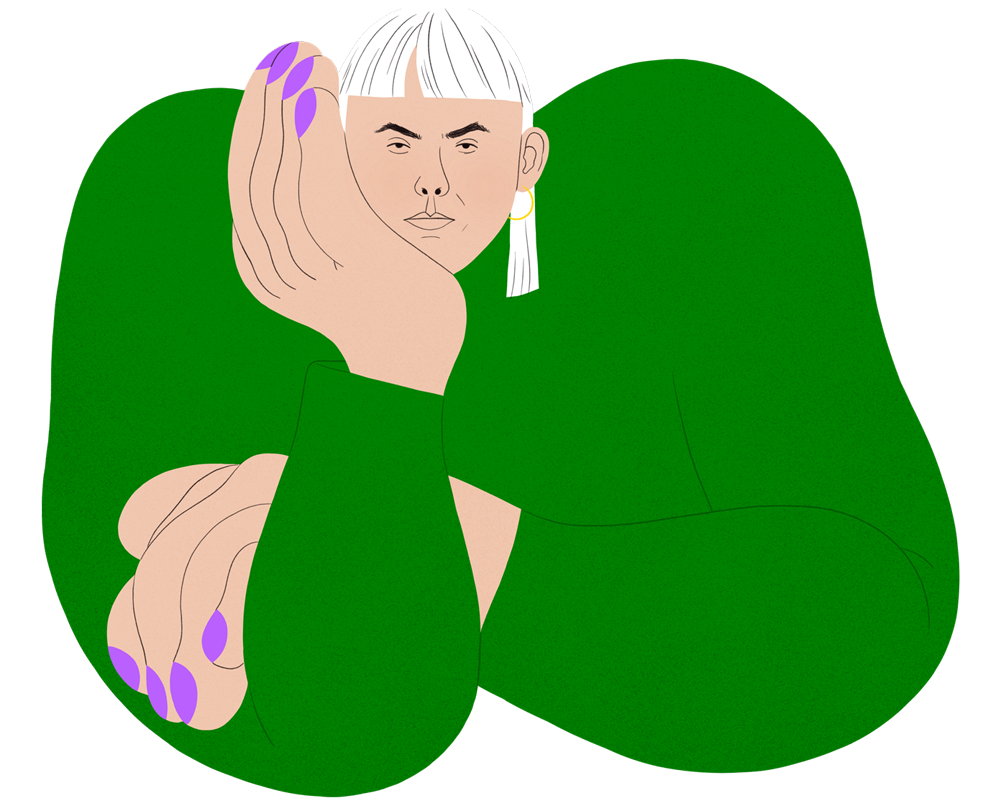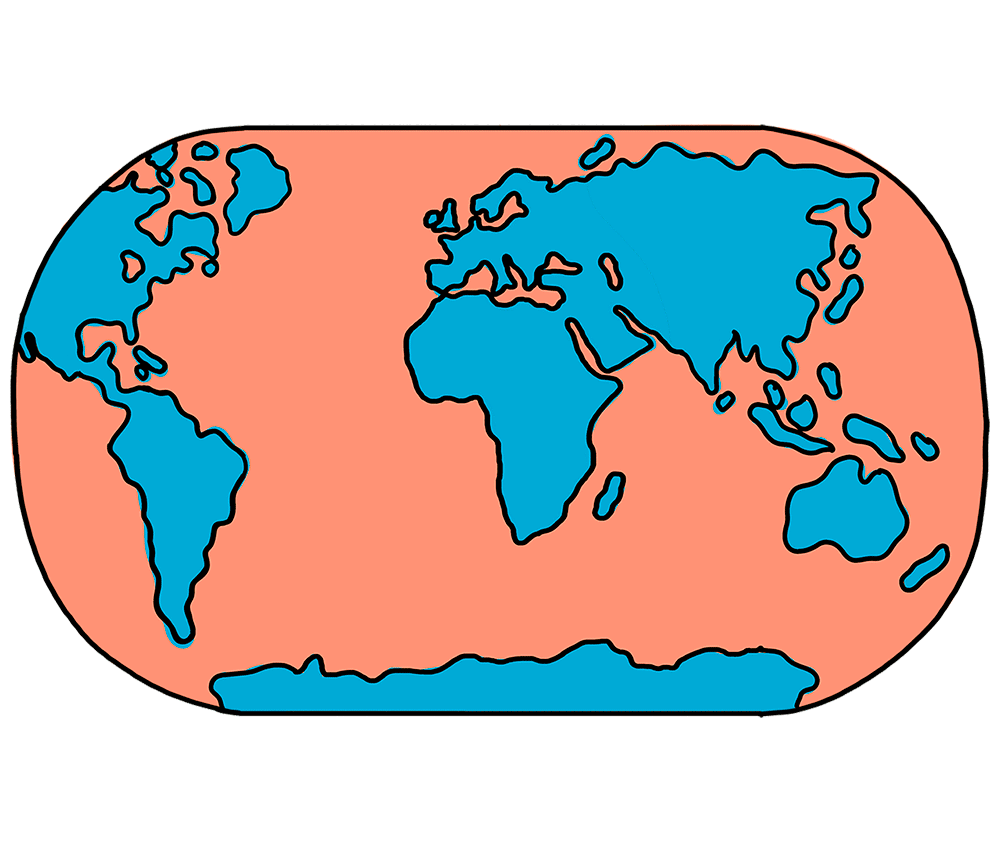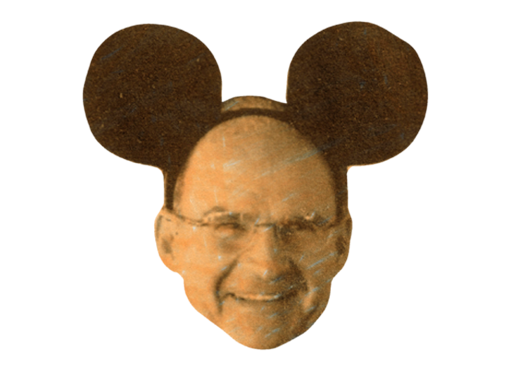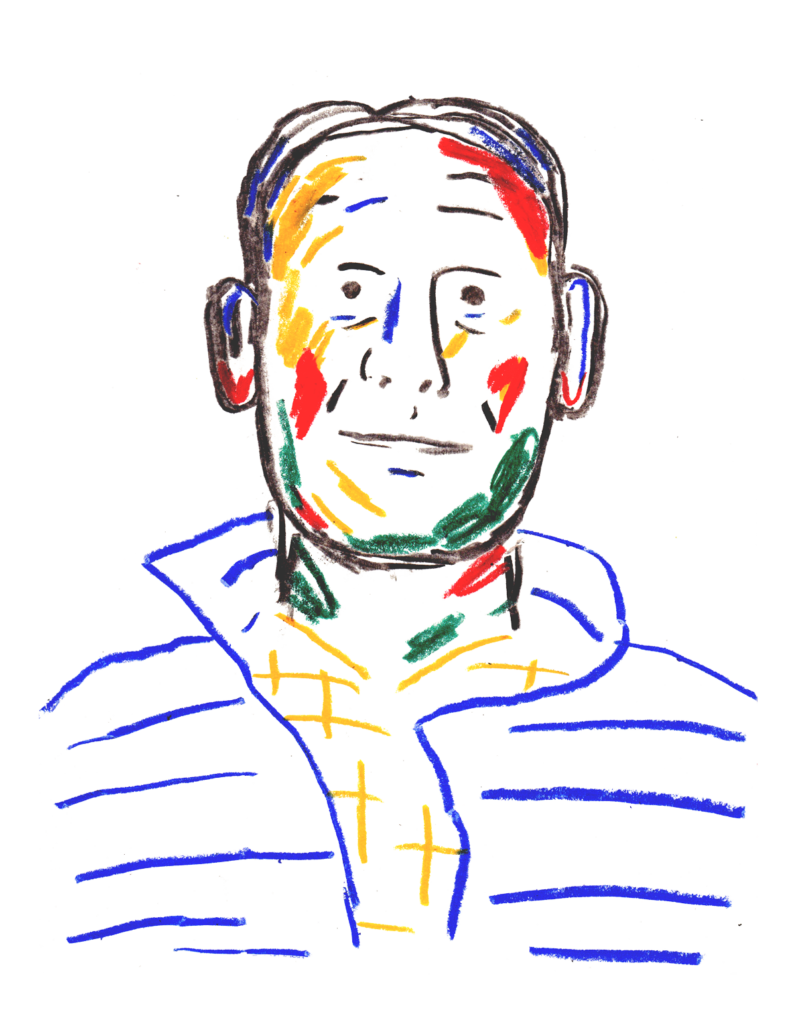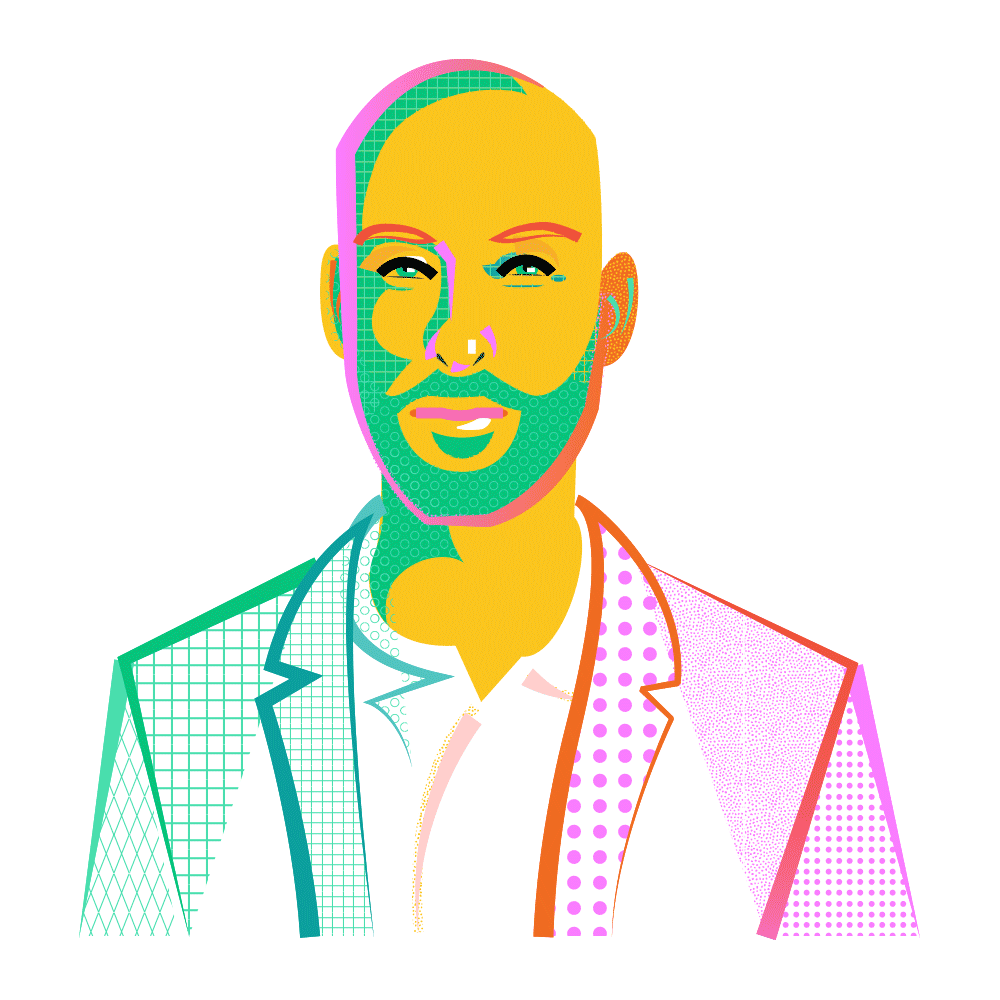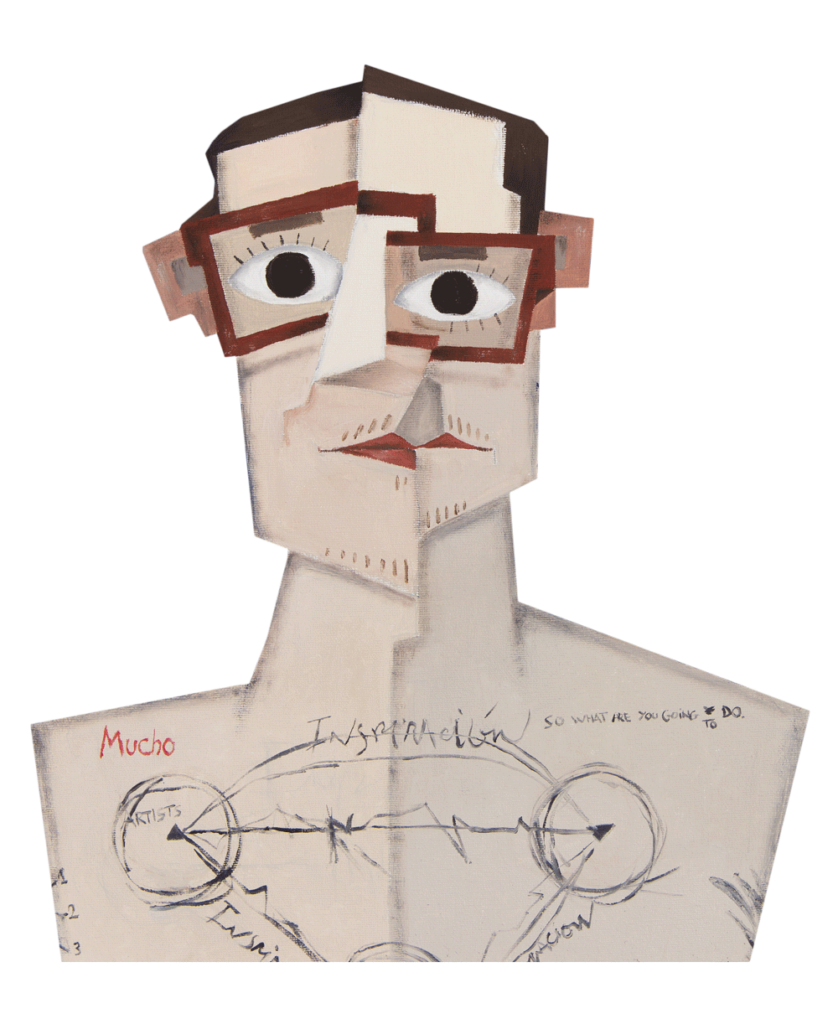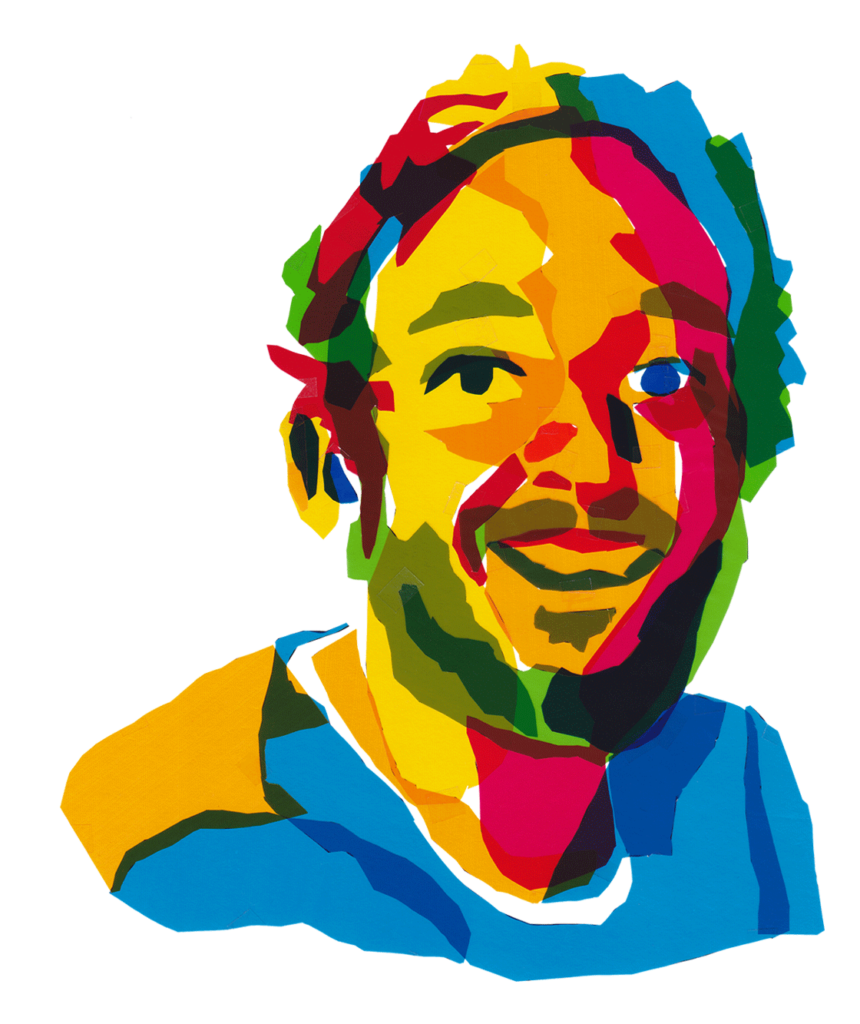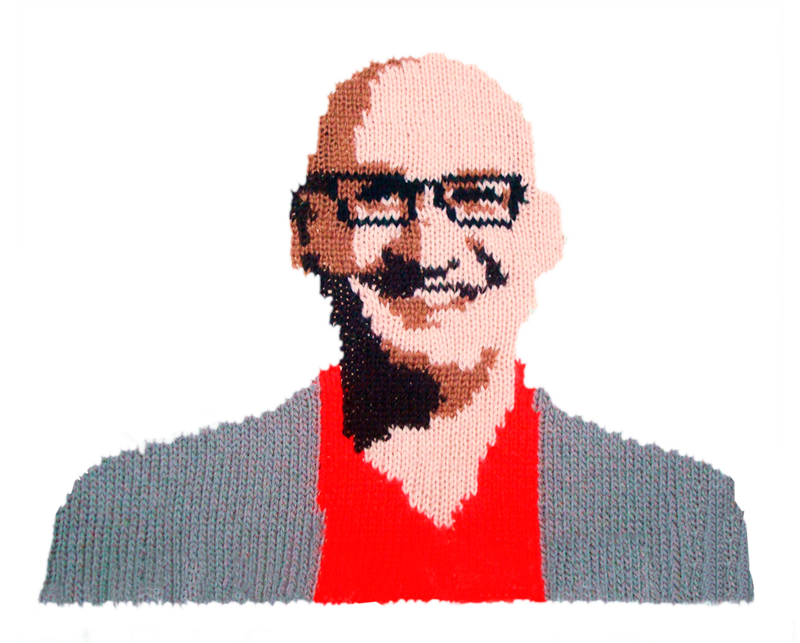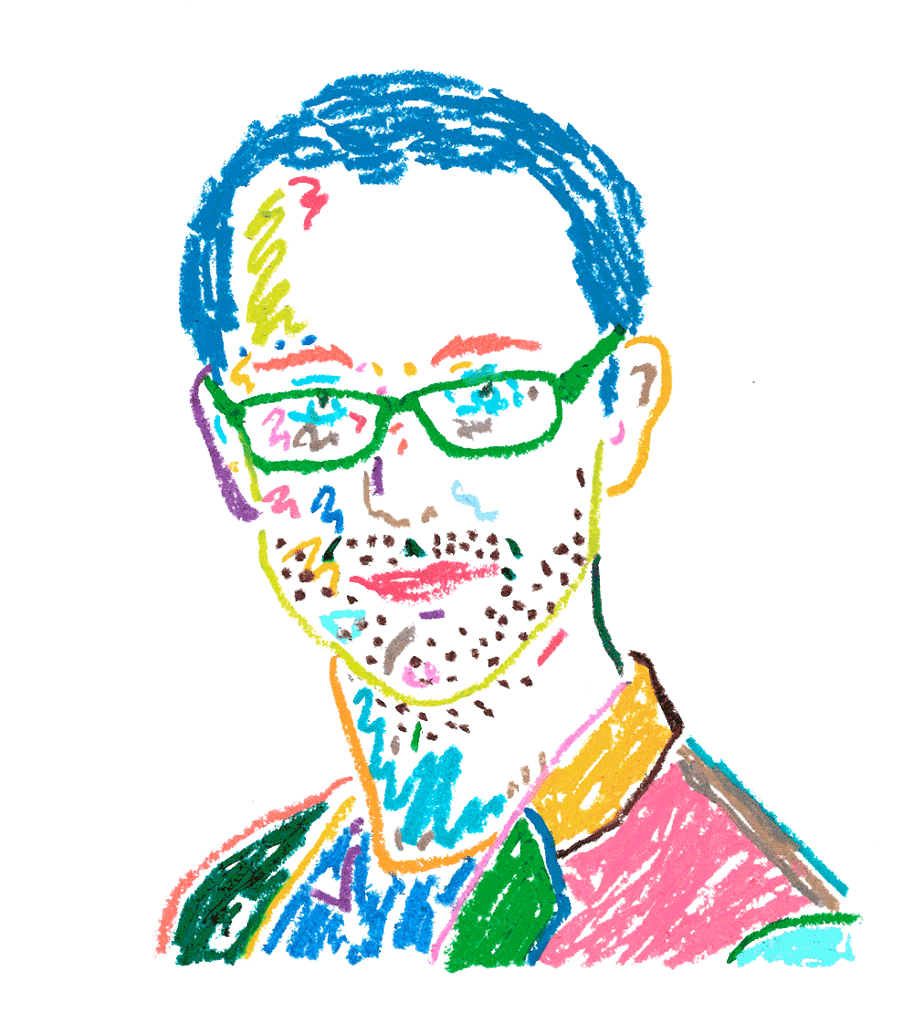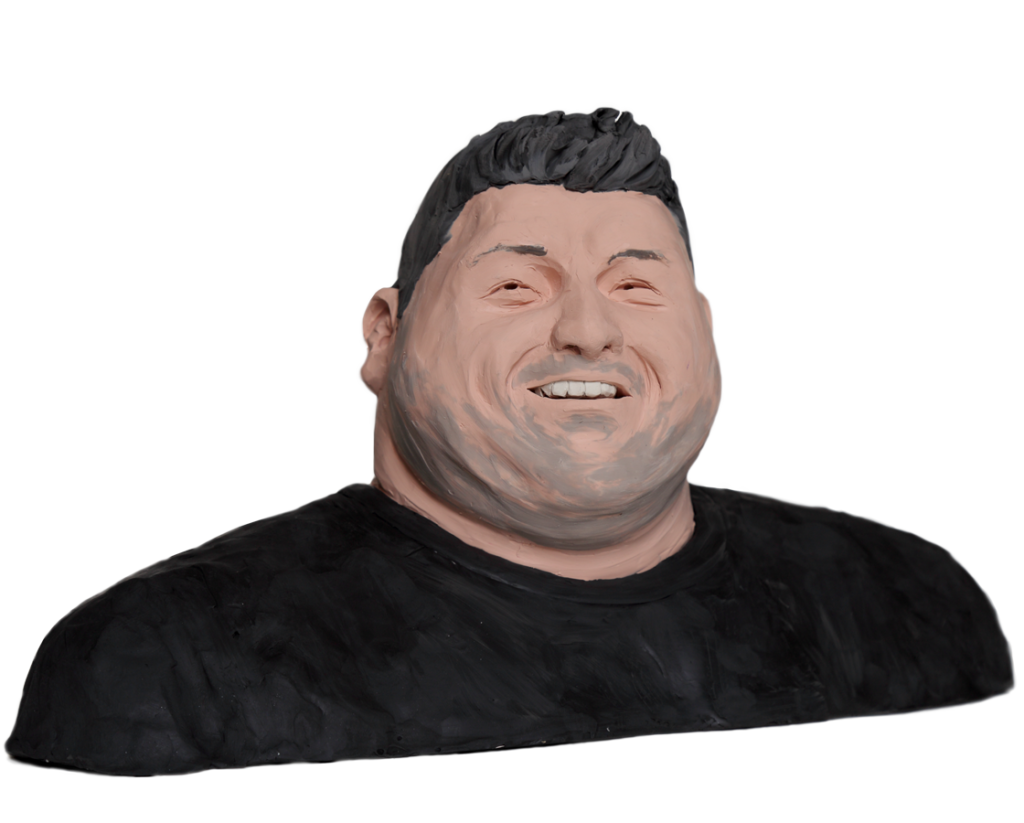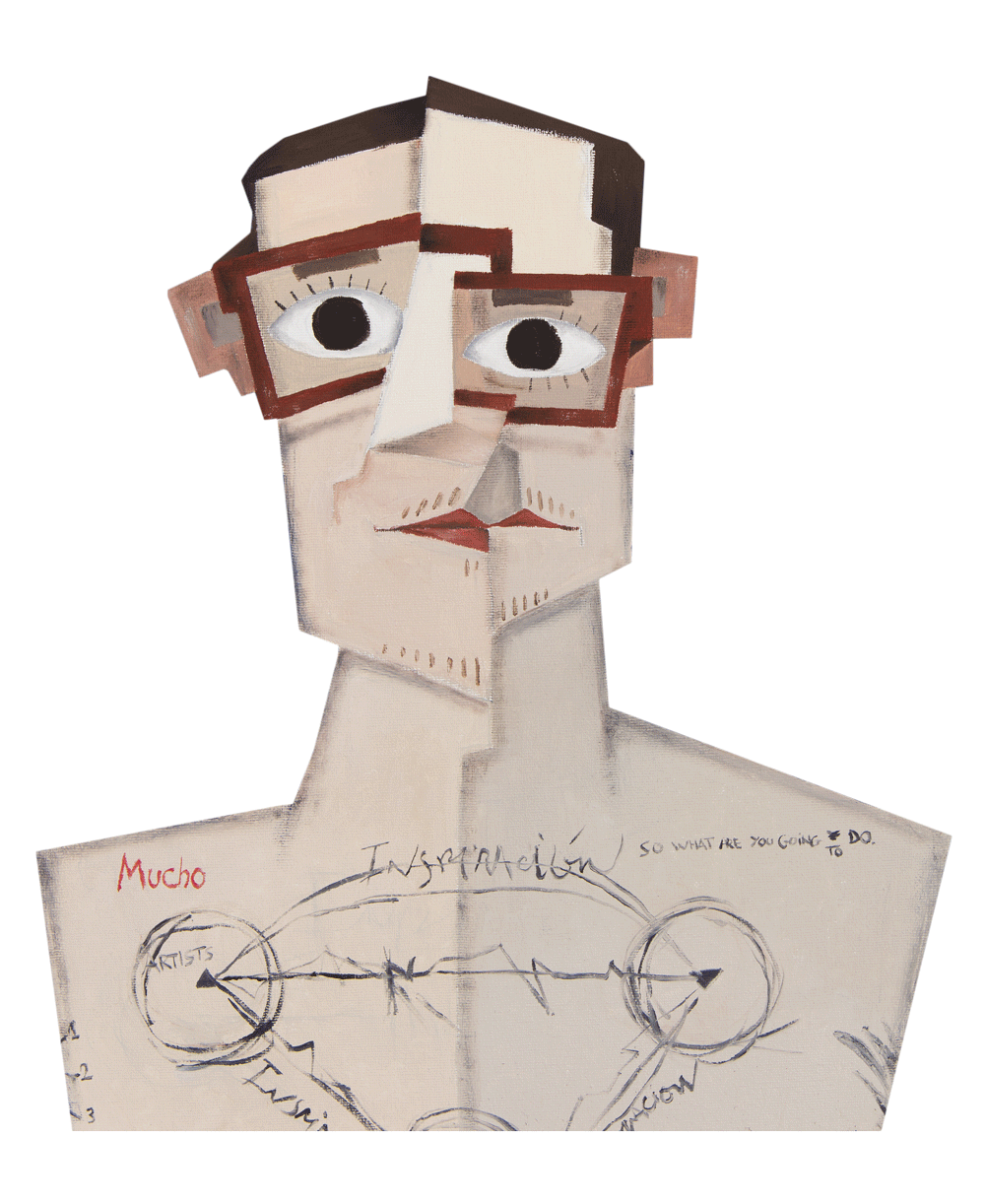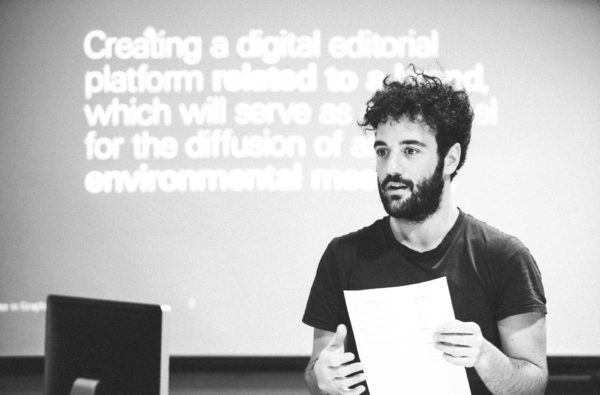As inspiring as enigmatic, OFFF is a festival of creativity involving some 20,000 people worldwide. Across its 17 editions, the festival has turned into a global reference for the post-digital culture, and it was created literally overnight. In our conversation with OFFF founder Héctor Ayuso —a Renaissance man born in the digital age— we decided not to ask him a single question about the festival. Instead, we set off to explore a brilliant mind, its beauty and its ghosts, its ideas and its dreams, and all that’s in between: creativity.
Do you dream?
Yes, very much. I’ve always dreamt a lot. Our phantoms work through dreams and the subconscious. I learned how to work with them. For a long time, I carried around a notebook where I wrote all of my dreams down. I dreamt entire movies and they helped me to write a few too.
What do you dream about?
A lot of things. The last couple of weeks before every OFFF edition I have nightmares. They return every year, even though after all these years I’m able to find my calm again once the festival starts. I dream no one shows up, about a disappointed audience, or me opening the door and encountering an empty room. Very dramatic stuff.
Dreams are supposed to be the manifestation of the subconscious. When does the subconscious become important in your way of creating?
I’m an entirely subconscious being. I’ve been going to a Jungian therapist for 25 years to work with my subconscious and to learn from it. I went there up until a year ago, as I had some personal problems I needed to face. The best part about you lies in the subconscious, even though it might seem scary at first . You need to learn how to listen to your phantoms, learn how to read them and how communicate with them. It’s about learning to have conversations with yourself and giving the brain the capacity to come up with new ideas.
When people propose a new project to me, for example, I don’t go home to think about what I should do next. It doesn’t work that way. I know that at some point, while watching television or reading, something will eventually come up. Only then I start taking notes and building everything. It’s all about listening to yourself. It’s something you learn with time.
How influential has this long and guided exploration of the subconscious been for you?
It has influenced me in every possible way. For people with a more profound sensibility it’s easier to listen to the self and to go down their personal hells. For others it is harder. I used to be one of those, as I come from a complicated past that made me close myself off. I could never have had a conversation like the one we are having right now, for example. It was practically impossible to talk to me. I’ve come to learn how to listen to myself, to accept me for who I am. I’m able to talk about it now, which is crucial.
We all have our demons. Being able to see them, to talk to them and to communicate them to others has allowed me to become the person I am today . If it wasn’t for that, I’d still be in my hometown of 3,000 inhabitants, running my mother’s supermarket. It wasn’t my destiny, something else was. But for that to happen, something else needed to happen first. I had to feel the need to escape, to go to therapy, and become another person —the one I am today.
I guess there is no general formula and everyone has to look for their own way of facing their white elephants.
Exactly. There’s no blueprint that works for everybody; we have to find our own. My therapist used to tell me, “the day you’re able to emotionally undress yourself in front of an audience is the day you’ve reached your pea”. And that is exactly what I do every time I’m giving a conference. It’s showing the people in front of you who you are and where you come from, without changing anything. Being the director of OFFF isn’t the only thing that defines me.
Where does the director of OFFF come from?
I was born in a small village near Valencia. I was raised in a very complicated family because my father was an alcoholic and we, my siblings, my mother, and I, suffered many abuses. The situation obviously brought with it some consequences, and it affected every one of us in a different way. In my case, the situation culminated with me leaving town at the age of 17.
Even though my older brother and I are almost 5 years apart, he was the one I grew up with him the most. I was always close to him, absorbing the music he listened to and watching the movies he did, even though at the time I wasn’t nearly mature enough to have access to that kind of content. It ended up defining who I am. Back then, I was already very obsessed with cinema, so when I learned that there was a film school in Barcelona, I knew I had to go there. Nobody supported me of course, but in the end I found the resources to go. And so everything began in Barcelona…
You created OFFF the exact same day you came up with it, you don’t want to know anything about your speakers until the official opening and you ask artists not to tell you what they are going to do; leaving room for the unknown seems like a constant in everything you do. How important is this component in your way of doing and creating projects? Why work this way?
For one very simple reason. There is a phrase I’ve been using for many years now, ever since the very first year the festival was held; “Everything you have is what you give away”. I tried to create a festival I would like to go to as a spectator, so I don’t want to know anything beforehand and give artists absolute freedom to create whatever they see fit. I want to be in the same position as the audience. I don’t want to see anything until the day of their presentation at the festival, nor do I want to know what it will about. I want to be part of the experience, the expectation, the waiting, the excitement.
It’s what feeds me. It allows me to keep doing the things I do. I’ve never liked to be part of processes; I want to discover things, to see them when they are done. I like trusting people. Throughout the years, everyone I worked with has delivered amazing results. Even though working his way also means tripping sometimes, you learn from every one of those times. It would be impossible otherwise. I have to have my blows, if not, it wouldn’t be exciting.
It seems like you want to create a fertile terrain for things to happen in a more intense way. Allowing artists total freedom and not wanting to know anything about their processes, initially seems like a big deal for a creator. Does not having rules affects the way in which one creates? And further: does it generate more expectations towards the artist? Maybe even panic? Has there been such a case?
When I read a proposal, I get excited, goosebumps even. The moment I say yes to an artist I don’t want to know more. Things become interesting when you allow artists to do what they really want to do, free from any restrictions. It enables me to fully enjoy their work. If I were a part of the whole process and already knew exactly what each one was going to do, to me, it would lose all its value.
If you give people the freedom to grow on their own, the liberty to find their own way of communicating without giving them a set of instructions, they’ll end up with something far more interesting. Like everything else I do, this involves risk. When there’s no risk, there can be no excitement. I haven’t dedicated myself to this to not have fun, I want to have a good time. And obstacles never prevented me from having a good time.
People have come to understand this. They know that when they come to the festival, they’re also taking a risk. They know who they’re facing. Over time, the OFFF visitors have become an audience that has been coming back for years, every year. And they became very demanding in the meanwhile.
I see another parallel with the seventh art: there are those who define cinema as a strategy of emotions through words, sounds, and images. I think it’s the key to the success of the festival. Most of the audience doesn’t know that there is all of this energy behind it, yet they can also feel its presence.
I am thoroughly convinced that the risks we take are key. Even more the risks we have taken upon ourselves. Maybe people don’t perceive it that way, but that’s how it is. When I draw up the program for the next OFFF, I am already taking risks from the very first minute as I intend to never repeat. I want to bring new people, be bold, and create new content and formulas to present the conferences. In the end, you don’t want people to feel like they’re coming to something safe and comfortable, you want to bring them to something they weren’t expecting.
I have a good relationship with the people organising similar events throughout the world. I have very few enemies, if I have any at all. Sometimes people in the industry ask me for my formula. I tell them a predetermined formula doesn’t exist; everyone has to find their own way of doing things. To replicate mine would be impossible. It’s mine, and I have to trust my intuition like I have always done with everything I do. And that can’t be replicated or explained.
You’ve worked in the creative industry for over 20 years. Artist, filmmaker, creative director, storyteller, curator; there’s no way to label you. Do you feel like we are headed towards a new era where the need to label will be less and less present?
We feel the need to label out of insecurity and because it’s how the market was initially set up. I don’t want to classify myself in any way, I want to always be open to anything. I want to learn and not be afraid of anything.
Nowadays, there are a lot of people moving throughout various disciplines; they have a strong base in something and they use it to contribute to the others that surround them. I think this is very positive. It’s pure logic also; the more you read, the better you will write; the more you know about image and expression, the better you will communicate, independently of what discipline you end up choosing.
Every discipline has a mentality, a modus operandi. Coming from another discipline might make it easier to break the rules, simply because you don’t know them.
Exactly. You can add something new to a specific language. To me, the only thing that matters is the idea behind your work , that you have elaborated the idea and the story you want to tell, and how you want to tell it. The use of a certain medium comes in later.
In the history of art, there have been alternating phases in which the ideal of the multidisciplinary man became exalted. Do you think the digital environment is contributing to the gradual disappearance of a division between the arts and other disciplines?
Yes. In the digital age we have access to all kinds of information that used to be inaccessible up until not that many years ago —be it soft- or hardware. We are capable of anything. We have all the tools. These days, if you’re not capable of communicating i’s simply because you don’t want to.
Could this model move from micro to macro? I mean, could the figure of the versatile man be transferred onto a versatile studio model in which competence is defined by thought and where more fields and moments of creative processes can be discovered?
I think studios are already looking for more versatile profiles; they no longer search for someone who only specialised in one field, but rather someone who’s able to contribute to many. Also, from the moment someone enters your team, it becomes much more complicated to define them and what they do exactly.
You know and presented some of the most important figures in creativity and digital communication since OFFF’s first days. Have technologies been evolving exponentially? How has digital communication changed in this decade?
When we started OFFF, everything was still very marked by a series of brands and softwares that defined the sector. OFFF began as a festival for videos made with Flash, for example. Now, we focus a lot more on efforts, concepts, and ideas. It’s about the how and why you do something, rather than the tools you’re using.
Technologies don’t define your work, they are there to be used and little else. Those who create should be aware of this: it’s you who contributes something, not the technology you have access to or the ones they put in front of you.
The word “reference” really kills me. I feel like it already predetermines what you’re going to do. I think if you really want to do something new you’re not going to find it looking for references, but by looking into your own self. To me, the most enriching has always been to just look at things, as much as I possibly can, to fill my head with images. The most important thing is to communicate in your own way, with your own language, and not with the voice of others.
You’re a maker. You say you hate teaching, yet you have a good time when you see someone learning something, unblocking his ideas and putting them into action.
More than disliking teaching or giving conferences, I always had a terrible fear of speaking in public. It’s something I had to face throughout the years and which, even now, I haven’t fully transcended yet. I still suffer, but I enjoy it. I know that’s absurd but there is something inside of me that terrorises me when speaking in public, yet satisfies me at the exact same time, because it allows me to transmit the experiences I have lived. It’s priceless, incredible even.
What are your classes like?
In general, it doesn’t really matter what audience I speak to. I always focus classes the same way; based on my experiences. A presentation should be a conversation , rather than a speech given from up a pedestal with everyone else looking at you.
I also use a lot of a cinematographic language. It has been my native tongue ever since I was a little boy. With it, I have learned absolutely everything, it’s what I know and how I communicating. It gives me all the tools I need. Cinema and its language have fed me and keep on feeding me enough in order to communicate in any field or discipline. I try to offer my audience similar tools as to unlock what they have inside, more than teaching or explaining them what they should do. I’m not going to tell you how to make a poster, I’m going to try and unblock your mind so you can see for yourself.
If you had the power to change and revolutionise the world of education —not only in regard to the creative world— what would you change?
Teaching has been done in the same way for quite some time now, as if there’s an incapacity to break the current. Everything is very structured and formulated. It’s not teaching, it’s merely reciting a speech about what a teacher thinks should be learned and how. They are indoctrinating students instead of guiding them in their paths towards learning. They’re using an old discourse, the exact same one they’ve been using for years, and it isn’t good.
I was invited once to teach a Masters program for one week. To the students, I was a shock. It even prompted some of them to file a complaint and to ask back the tuition money they paid. I only went there with the intention of unlocking the students and having them learn something.
Before our contemporary age, the world of education was responsible for the curatorship of students’ material. Everything came from the same source, was ordered and established. Now, we have access to an infinite stream of information, that goes further, even, than books. What do you think the role of education should be, now that it no longer makes sense to provide content that is already available everywhere else?
The job fundamentally lies in educating. Knowing how to discern and assimilate in order to find your path. It’s about motivation. If you are not capable of motivating someone, you almost lose the right to educate. Many students are so confused, they don’t know what to do. They have so many things in their heads, they no longer know what to follow up with first. You have to be able to lead a person to the place they belong, or at least the one they want to go to. The key is in changing these things.
How do you see Barcelona? What did you see before coming here?
Barcelona contributed to my growth. I managed to open myself up here and become another person. The years in film school weren’t easy, and when I graduated I started working in a fast food place where I gained weight drastically. I came to weigh 115 kilos. Later I became the person I am today; a triathlete obsessed with sports.
I’ve tried living in other places, though. I lived in New York for almost a year, then London and Mexico City. I always ended up coming back here, so I decided to never leave again. Barcelona is my home. It has everything one can look for. When you arrive here, it feels like you can do anything you want, like you’re going to achieve everything you wanted to because Barcelona has the means for you to get there.
What is the Barcelona brand?
It isn’t easy to find a place where you feel well received upon arrival, but it’s something you do feel in Barcelona. From the moment you set foot in its streets —be it for leisure or for work— you know you’re going to have a good time. That’s what a brand should be like; make you feel comfortable. Barcelona lets you be who you are, it doesn’t impose another person on you. There is soul, there is essence , and you feel it’s a part of you. I can’t remember any other place I visited where I felt this way.
What are the central axes of the city in the future?
I think Barcelona will irremediably continue to be associated with the values it’s already associated to today: technology, design, and tourism.
You’re a curator. What does ‘curating’ mean to you? What type of projects do you work on?
It isn’t too different from how I carry out other projects. I do a lot of collaborations with the people I’m very close with. I’m very proud that nearly all of the people who ever came to OFFF, to this day, have become friends. I feel very lucky to have built relationships that go beyond organiser/guest. It makes things a lot easier.
There’s one project I am very fond of. We have been doing OFFF in Cincinnati for five years now, in partnership with the Cincinnati Contemporary Arts Center, but six months before the third edition, the director of the museum called me up and told me they had programmed an exhibition during OFFF, but that it had fallen through. She asked me if I could think of something to do with the free amount of money and square footage. It was the first big exhibition I curated, and it perfectly defines my work as a curator. It allowed me to do what I really wanted to do; I had money, space, and I could do whatever I wanted with it.
How did you set up this first exhibition?
I turned the museum into everything it isn’t supposed to be: a school playground. You could do everything they forbid you to do in a museum; paint over and scratch paintings, litter, throw a birthday party, whatever you wanted. It was called On Handcrafted Digital Playgrounds. I chose a series of artists whom I had already worked with and trusted. I designed the exhibition, set forth the concept, and then stepped aside to let the artists work as they pleased. The museum never received more visitors.
It makes me think about a story by Werner Herzog, who, in his diaries, talks about ‘The great metaphor of the Palermo pig’. Once, there was a pig strolling through the streets of Palermo, when it suddenly fell down into the ditch of a street market. Instead of trying to get out, the pig figured he could live of the trash people threw into the ditch. He no longer needed to look for food, it got there by itself. And so the years went by. When they finally took him out though, he had become a greasy, disgusting ball.
Reading this in film school, I promised myself that I would never become that pig and that I was never going to settle for anything. In regard to curating, the easiest thing would have been to receive the money, the space, and to create a normal exhibition without taking any risks. Why do I work in the way that I do? Because it wouldn’t be any fun otherwise. I wouldn’t contribute a thing. I want artists to enjoy themselves and to have the opportunity to do something different. I don’t want to get stuck like the pig. If one day I find myself doing things the easy way, I assure you I will switch to another job immediately.
The role of a curator is more important than ever. They have to create experiences, rather than only show and gather artworks.
The goal is to generate a new experience every time and to come up with daring, surprising proposals. There has to be risk on behalf of the curator and on behalf of the gallery or the museum. Yet in the sector there are still fears and prejudices in regard to assuming certain risks.



